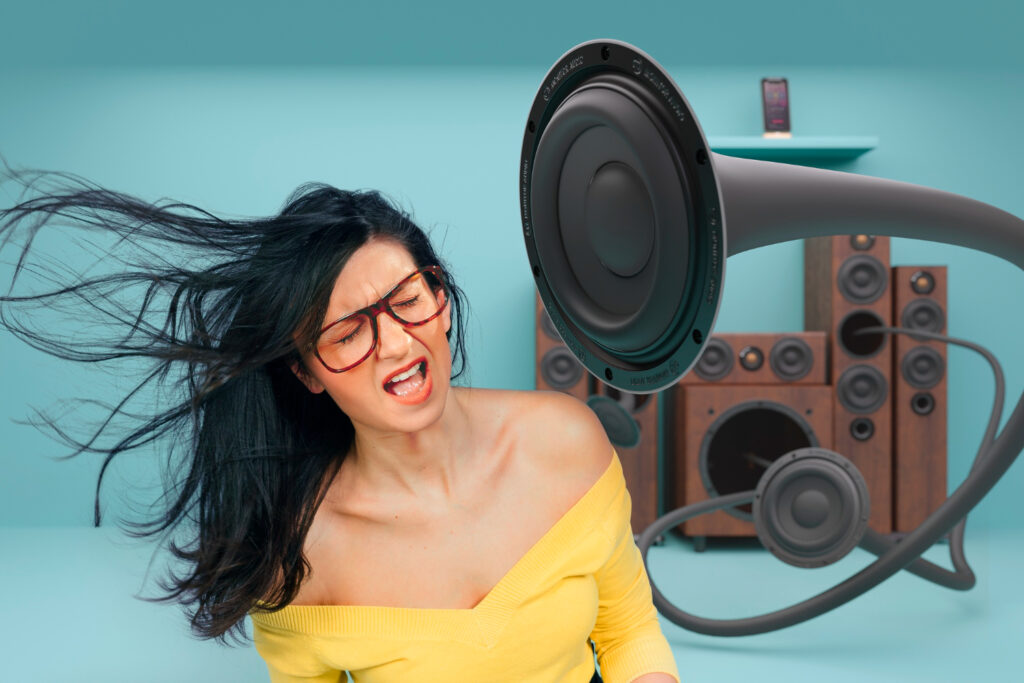Have you been wincing at sounds that never bothered you before? Does the clinking of dishes make you cringe? Are you constantly asking people to turn down the volume? If you’re nodding along, you might be experiencing something hearing health experts call “auditory fatigue” – when your ears are essentially working overtime.
When Every Sound Feels Like Too Much
Sarah, a 34-year-old marketing executive from Chicago, first noticed something was off during a routine workday. “The office sounds I’d tuned out for years suddenly became impossible to ignore. The clicking keyboards, people’s conversations, even the hum of the air conditioner – everything felt amplified and overwhelming,” she shared.
Like Sarah, millions of Americans find themselves increasingly sensitive to everyday noises. This heightened sensitivity isn’t just annoying – it could be your body’s way of waving a yellow caution flag about your hearing health.
Understanding Auditory Fatigue
Imagine your ears as muscles. Just like your biceps need recovery time after a workout, your auditory system needs periods of rest. When it doesn’t get that downtime, you might experience what experts describe as “auditory fatigue.”
“Our ears and auditory processing systems weren’t designed for the constant bombardment of noise in modern life,” notes Dr. Michelle Barrett, an audiologist who specializes in hearing conservation. “From traffic and construction to personal devices and open-plan offices, we rarely give our hearing mechanisms a chance to recover.”
This fatigue can manifest as:
- Increased sensitivity to normal sounds
- Difficulty distinguishing speech in noisy environments
- A sense of fullness or pressure in the ears
- Mild ringing or buzzing sensations
- Finding yourself asking “what?” more often
- Feeling mentally drained after spending time in noisy places
The Hidden Toll of Our Noisy World
The average American is exposed to significantly more noise than previous generations. Consider these everyday sound levels:
- Normal conversation: 60-70 decibels
- City traffic: 80-85 decibels
- Subway train: 90-95 decibels
- Personal audio devices (at high volume): 95-105 decibels
- Sports events/concerts: 100-110+ decibels
While occasional exposure to louder sounds is generally manageable for most people, the cumulative effect of continuous noise exposure is what concerns hearing specialists.
“What many people don’t realize is that hearing strain is cumulative,” explains Barrett. “It’s not just about avoiding extremely loud sounds – it’s also about the total ‘sound dose’ you receive throughout your day and week.”
Are You at Risk?
Some lifestyle and environmental factors might make you more susceptible to auditory fatigue:
- Working in noisy environments (restaurants, construction, manufacturing)
- Living in urban areas with constant traffic or city noise
- Frequent use of earbuds or headphones at high volumes
- Regular attendance at loud events like concerts or sporting events
- Video gaming with headsets for extended periods
Simple Strategies for Healthier Hearing Habits
The good news? There are many practical ways to give your ears the break they deserve without dramatically changing your lifestyle:
1. Practice the 60/60 Rule
When using headphones, try keeping the volume under 60% of maximum and limit listening sessions to under 60 minutes before taking a break.
“This simple habit can significantly reduce auditory strain while still allowing you to enjoy your content,” says Barrett.
2. Create Sound Sanctuaries
Designate quiet zones in your home where background noise is minimized. Even 15-30 minutes of relative quiet can give your auditory system valuable recovery time.
3. Embrace Smart Volume Management
Many devices now offer features that can help protect your hearing:
- Volume limiters on smartphones and tablets
- Sound level monitoring on smartwatches
- Dynamic range settings on streaming services
4. Consider Acoustic Investments
Small changes to your environment can make a big difference:
- Adding soft furnishings to absorb sound
- Using rugs on hard floors
- Installing weatherstripping around doors and windows
- Using white noise machines to mask irritating background sounds
5. Try the 20-20-20 Rule (for Your Ears)
You might be familiar with the 20-20-20 rule for eye strain (every 20 minutes, look at something 20 feet away for 20 seconds). Consider adapting this for hearing: every 20 minutes of high-volume audio, take 20 seconds to appreciate 20 moments of relative quiet.
When to Consider Professional Support
While auditory fatigue often improves with rest and better sound habits, persistent symptoms might warrant a conversation with a hearing care professional, especially if you experience:
- Increased sensitivity that doesn’t improve with rest
- Sudden changes in hearing ability
- Persistent ringing or buzzing
- Pain associated with normal sound levels
- Difficulty understanding speech, especially in groups
The Bigger Picture: Hearing Health as Self-Care
“We tend to think about health in compartments – physical fitness, nutrition, mental wellbeing – but hearing health often gets overlooked until there’s a problem,” notes Barrett. “In reality, how we treat our ears impacts everything from our cognitive function to our social connections.”
Research continues to reveal connections between hearing health and overall wellness, including potential links to cognitive function and social engagement. By viewing hearing protection as an essential part of your wellness routine rather than an afterthought, you’re investing in your quality of life for years to come.
Moving Forward with More Mindful Listening
The solution isn’t to avoid sound altogether – that would be both impossible and undesirable. Instead, becoming more conscious of your sound environment empowers you to make choices that support your hearing health.
Start by simply paying attention to how different environments and activities affect you. Do you feel more mentally drained after certain noisy activities? Does your hearing seem more sensitive at particular times of day? These observations can help you identify patterns and make targeted adjustments.
As Sarah discovered after implementing some of these strategies: “I was skeptical that something as simple as taking ‘sound breaks’ could make a difference, but within a couple of weeks, I noticed I wasn’t as irritable around normal noise. It was like my ears had finally caught their breath.”

Disclaimer: This article is provided for informational purposes only and does not constitute medical advice. The information contained herein should not be used for diagnosing or treating a health problem or disease. If you have or suspect you may have a health problem, consult with your healthcare provider. Links to external content are provided as references only and do not constitute endorsement of those sources.



